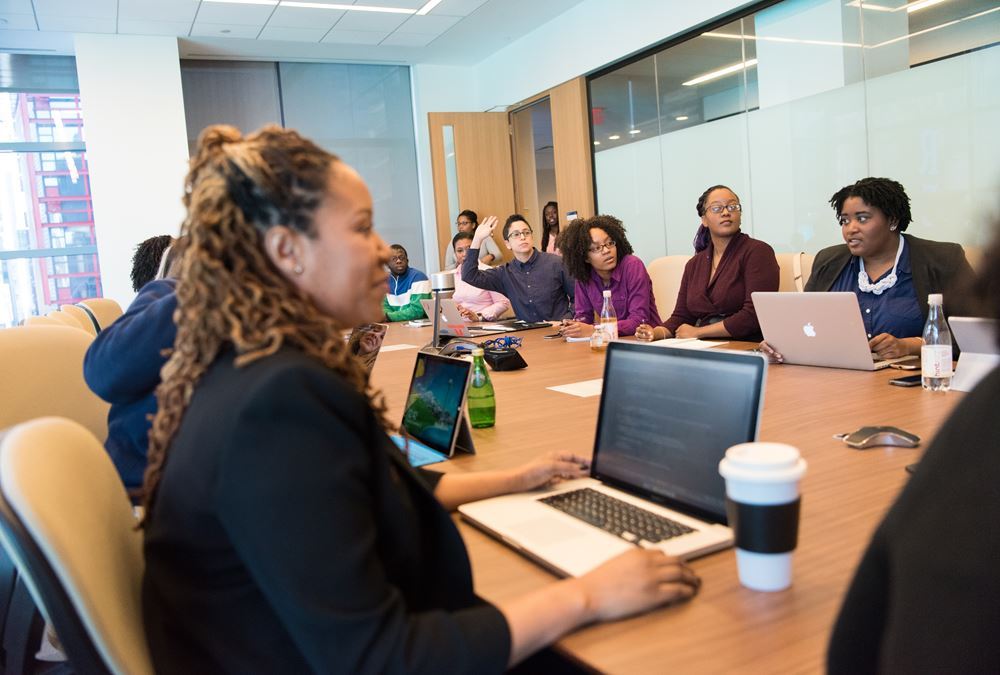- Home
- Business Processes
- Industry Knowledge
- Aerospace Industry
- Automotive Industry
- Banking Domain
- BFSI Industry
- Consumer/ FMCG Industry
- Chemicals Industry
- Engineering & Construction
- Energy Industry
- Education Domain
- Finance Domain
- Hospitality Domain
- Healthcare Industry
- Insurance Domain
- Retail Industry
- Travel and Tourism Domain
- Telecom Industry
- Leadership Skills
- eLearning
- Home
- Domain Knowledge
- Leadership Theories
- Participative Leadership Theories
Participative Leadership Theories
Participative leadership theories rely on the involvement of different participants and suggest that the ideal leadership style is one that takes the inputs of others into account. Participative leaders encourage participation and contributions from group members and involve them in the decision-making process. Participative leadership tries to achieve through people, teamwork and collaboration.
Related Links
You May Also Like
-
Contingency Theories of Leadership
Contingency theories of leadership focus on both the leader's persona as well as the situation/environment in which that leader operates. These theories consider the context of leadership which means whether or not the leadership style suits a particular situation and states that a leader can be effective in one circumstance and a failure in another one. A leader will be most effective when he applies the right leadership style to a given situation and environment around him. Contingent leaders are flexible and adaptable.
-
University of Iowa Studies was the first leadership study to analyze leadership using scientific methodology. The study was conducted by Lewin, Lippitt, and White and worked on different styles of leadership. The studies explored three leadership styles - authoritarian, democratic, and laissez-fair leaders. This early study was very influential and established three major leadership styles.
-
Leadership traits refer to personal qualities that define effective leaders. Here are the major leadership qualities that can make someone a good leader. Five key traits that are common in leaders can be learned and sharpened with time.
-
Leadership has been defined in different ways by different sets of scholars. In very simple terms leadership can be defined as the skill of a person to influence an individual or a group for achievement of a goal in a given situation. One can use different dimensions and perspectives to define leadership. Through the evolution of leadership thought, leadership has been defined in various ways discussed here.
-
Rensis Likert studied the patterns and styles of managers and developed four management systems known as Likert's management systems. These styles developed by him are known as Likert management systems. System 1 - Exploitative Authoritative; System 2 - Benevolent Authoritative; System 3 - Consultative and System 4 - Participative.
-
Role theory is a concept in sociology and the role theory of leadership borrows these concepts to explain how people adapt to specific organizational and leadership roles. How the leaders and followers in an organizational context define their own roles, define the roles of others, how people act in their roles and how people expect people to act in their roles within the organization.
-
Burns Transformational Leadership Theory
Transformational leadership theory has been defined by James MacGregor Burns as a process where both leaders and followers mutually raise one another to higher levels of morality and motivation. The concept of transforming leader works with teams to garner trust, respect, and admiration while reaching to higher moral positions. The transformational theory of leadership was developed while studying political leaders and how they use charismatic methods to attract people to the values.
-
The Path-Goal theory defines the characteristics of followers and organizational context and the corresponding leadership style best suited to these factors. A leader should adapt to a behavior that is most relevant for a given employee and work environment mix to achieve a goal. The application of theory drives increased employees' motivation, empowerment, and satisfaction resulting in increased productivity.
-
Substitutes for leadership theory is based on understanding the context within which leadership occurs. Different situational factors can enhance, neutralize, or substitute for leader behaviors like under certain circumstances, situational factors may substitute for leadership. These substitutes are of two types - substitutes and neutralizers. Substitutes take away from the leader's power and help group members increase their performance. Neutralizers only remove influence from the leader.
-
Robert Katz identified three leadership skills called - technical skills, human skills, and conceptual skills as the basic personal skills essential for leadership. Leaders must possess these three skills that assist them in optimizing a leader's performance. Technical skills are related to the field, human skills are related to communicating with people and conceptual skills related to setting the vision.
Explore Our Free Training Articles or
Sign Up to Start With Our eLearning Courses

About Us
Learning
© 2023 TechnoFunc, All Rights Reserved










